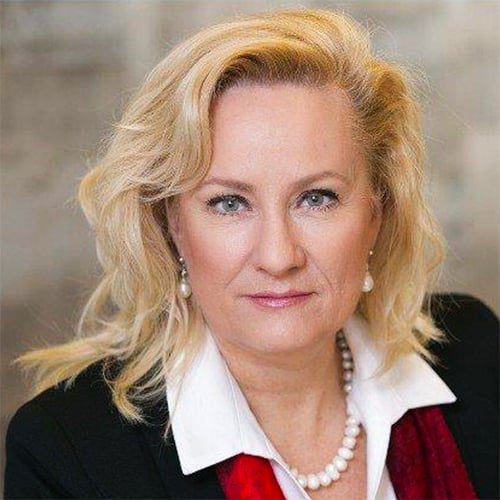ON the plus side, the Covid-19 pandemic presents a great opportunity for Hong Kong, as arguably the leading financial centre in Asia ex-Japan, to fast-track development of the city’s environmental, social, and governance (ESG) investing capabilities.
Hong Kong actually has all the ingredients that are needed to be the ESG investment servicing centre for the rest of the region. First, leading global institutional investors and asset managers who have already integrated ESG investing into their own portfolios have a presence in the city.
While Hong Kong’s huge retail investment community are still leery of ESG investing, it should not be too difficult to tap the expertise of the global institutional investors and asset managers in terms of educating retail investors on ESG.
Although Hong Kong’s retail investors admittedly have a short-term, gambling approach to investing, they are relatively well-educated and open-minded compared to their regional peers. Also, the impact of the pandemic may help in terms of changing this mindset.
Secondly, Hong Kong regulators are a bit more advanced than their regional counterparts in terms of their openness and adoption of ESG focused rules and regulations.
The Securities and Futures Commission (SFC), for example, issued a circular in April 2019 to provide guidance on disclosures by SFC-authorized green or ESG funds, and a central database of these funds was made available on the SFC’s website at the end of 2019. This was a result of the SFC’s green finance framework that was launched the year before.
The SFC has also been proactive in terms of engaging the fund management community to promote ESG investing. In December 2019, the SFC also published the results of its survey of the ESG investment practices of asset managers and asset owners in Hong Kong, which found that there is significant interest among asset management firms to ramp up their ESG efforts and management of environmental and climate risks.
Thirdly, Hong Kong already has strong global linkages with leading ESG authorities and practitioners, particularly in the European Union, which are undoubtedly ahead when it comes to development of ESG standards and regulations.
Hong Kong regulators and fund managers can leverage these linkages in order to tap the ESG expertise that are already available in the EU and adapt them to the Asian market.
But despite all these factors going for the city, a recent survey by the Hong Kong Investment Funds Association (HKIFA) indicates that a lot of work still needs to be done within the fund management industry itself before Hong Kong can move on to become the ESG investment centre for Asia.
A recent study, known as “Vision 2025” published June 9 by the HKIFA and KPMG, indicates that while ESG investing will become the “new normal” in the industry, greater collaboration between industry stakeholders is needed to create clear ESG standards for Hong Kong. The lack of consistency in ESG methodologies and standards, not just in Hong Kong but worldwide, remains a significant challenge.
Industry executives interviewed for the study unanimously agreed that the industry and the SFC should work together to fast-track the development of industry-wide standards for ESG in Hong Kong.
The study also recommends that the SFC works with other regulators in key jurisdictions to achieve greater alignment on ESG standards. This recommendation is echoed in the HKIFA’s “Roadmap for the Asset Management Industry to promote Green/Sustainable Finance”, a set of best practice guidelines for the industry issued in August 2019.
Another issue is that fund managers also have different opinions on the extent to which they will undertake ESG integration in their portfolios.
For example, respondents to the survey of HKIFA members that accompanied the study, when asked about the proportion of assets under management (AUM) of their respective investment management business in Hong Kong that they expect to be invested in ESG products by 2025, gave different responses. About 84% of the respondents expect the proportion to be more than 5%, with just over a quarter expecting a proportion to be more than 25%.
Despite the varying expectations, the overall trend is that in the longer term, ESG will form an integral part of the investment process and fund management industry.
A third important issue is the serious lack of ESG and sustainability experts in Hong Kong today. While the big corporates are building up their ESG teams, the fund management industry also needs to build up a strong army of ESG experts who are familiar with the regional and local investment practices, regulations, and landscape.
In addition, most of the ESG experts practicing in Hong Kong today are foreign educated because of the shortage of ESG-focused educational programmes and curriculum. The local universities and educational institutions need to create ESG-focused programs designed for the investment community not only in Hong Kong but also for Asia.
In any case, the HKIFA, perhaps realizing the opportunities that come with turning Hong Kong into Asia’s ESG investment centre, has come up with some recommendations.
According to Bruno Lee, HKIFA chairman, the recommendations include:
- Encouraging asset managers to commit to producing climate-related financial risk disclosures and becoming signatories to the UN Principles for Responsible Investment.
- Fast-tracking the development of industry-wide standards for ESG in Hong Kong.
- Ensuring that retail investors are properly informed about the benefits of ESG investing, and dispel the misconception that investing in ESG products means sacrificing returns.
- Introducing an overarching framework in Hong Kong to maintain minimum standards and oversight of the ESG data provided by third parties, and to improve data integrity and credibility in the market.
- Developing an industry-wide programme to offer structured ESG training and qualifications that combine both financial and ESG skills and knowhow, using the European Federation of Financial Analysts Societies’ ESG Analyst certification programme as a reference.
“We are working proactively with the regulator in Hong Kong and other parts of the mutual fund industry to try to come up with a harmonized approach in terms of the standards to measure ESG. We believe this will help to fast track development of industry-wide standards for ESG in Hong Kong and to be one of the leading centres to promote this,” Lee says.
“Interest in ESG is really starting to grow in Asia, initially from the sovereign wealth funds, but increasingly more so from intermediaries. Clients are starting to ask how they can apply ESG within their existing portfolio. Instead of just underlining the benefits of ESG, we should explain to them what the downsides are of not incorporating ESG,” says Amy Cho, chief executive officer, Schroder Investment Management (Hong Kong).
Overall, sustainable finance is experiencing strong growth worldwide, with the value of AUM increasing from close to US$23 trillion in 2016 to US$30.7 trillion in 2018, according to the Global Sustainable Investment Alliance. This upward trend is only expected to accelerate in the coming years, with ESG investing poised to become the ‘new normal’ worldwide.









